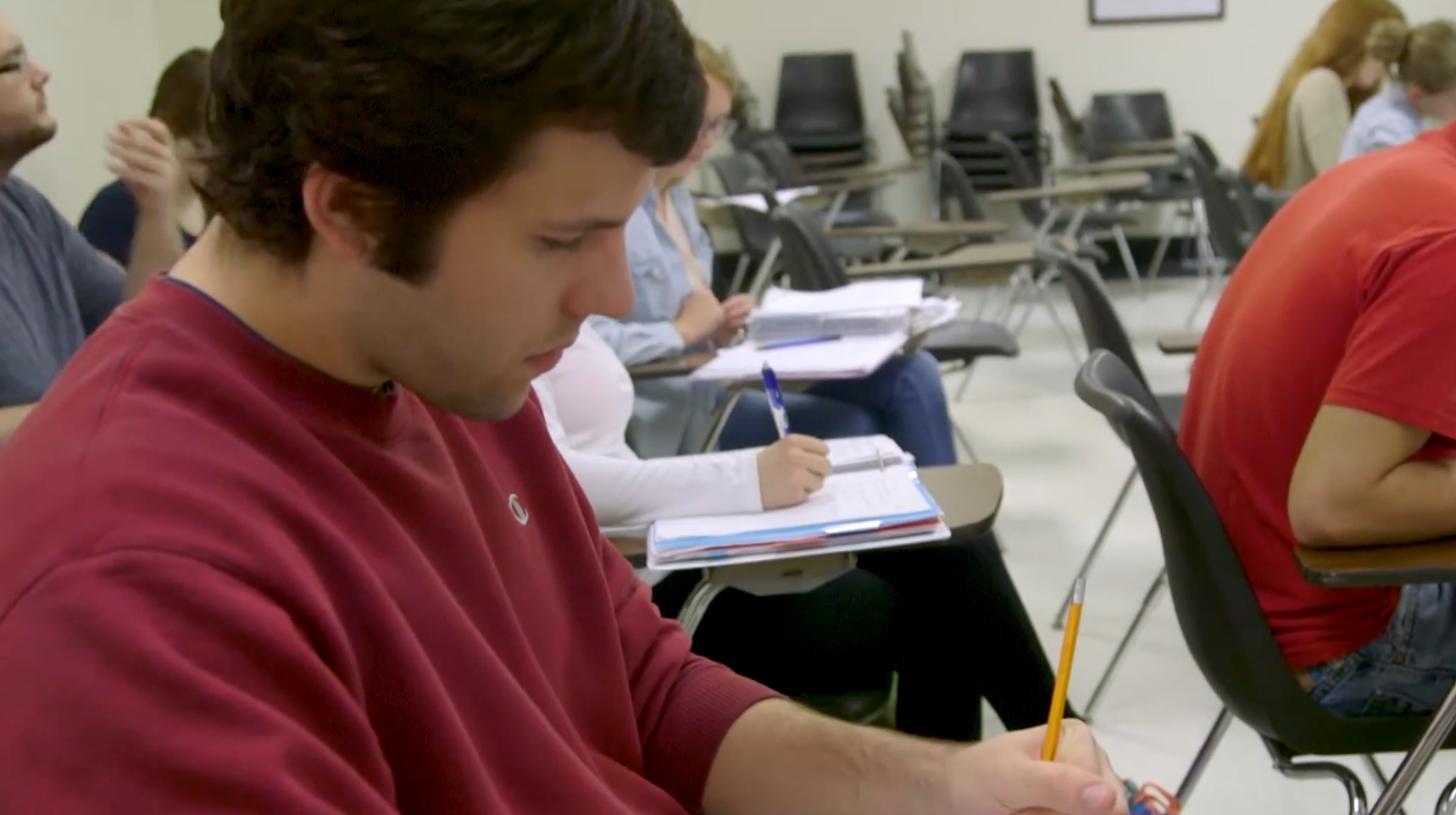Department of Mathematics
We excel in undergraduate and graduate education and research.
We offer undergraduate majors in mathematics and statistics and several minors. We offer master's degrees, graduate certificates and a new Ph.D. in mathematics with computation. We are excited to offer the first doctoral program at the College of Charleston!
 Play video
Play video

Explore the Math Major
Why should you consider mathematics? Hear from two students and a professor.
Watch Video
Academics
Earn a bachelor of science in mathematics, statistics, or one of our joint degrees in data science or math education. You can add our minors in mathematics, statistics or pre-actuarial studies to majors from other departments.
Undergraduate Majors
- Mathematics, B.S.
- Statistics, B.S.
- Data science, B.S.
- Mathematics (teacher education program grades 9-12), B.S.
- Mathematics
- Statistics
- Pre-actuarial studies
Take your credentials to new heights
Join the accelerated “4+1” Program. What is it? It’s a combined bachelor of science and master of science program. That means you’ll graduate in just five years with a master’s degree!
Five-Year Combined Program
- Mathematics, B.S. and M.S.
Graduate students
Whether you're aiming for higher credentials or a specialized certificate, we have the perfect pathway to help you achieve your goals. We offer a master's degree in mathematical sciences with concentrations in mathematics or statistics. We offer an innovative new Ph.D. in mathematical computation for students seeking a research credential. If you're looking for a career-boosting specialized credential without the commitment of a master’s program, our certificates are the perfect fit for you.
Graduate Programs
- Mathematical sciences, concentration mathematics, M.S.
- Mathematical sciences, concentration statistics, M.S.
- Statistics (graduate certificate)
- Operations research (graduate certificate)
Doctoral Progam
- Mathematics with Computation, Ph.D.
As a liberal arts institution, I knew I would receive an interdisciplinary education. When CofC walked me through what I needed to do, I knew I would be supported.
Joseph Brennen, ’22, mathematics and biology
Career Opportunities
Are you asking yourself, "What kind of jobs will I get after graduation?" You'll have so many options!
Our graduates have gone on to work in:
- Banking.
- Education.
- Finance.
- Data science.
- Inventory management.
- Software engineering.
- Government positions in security and defence.
These positions need people with skills you get from a math education. The skills you develop are more important than any specific mathematical technique.
If graduate school is part of your path, studying math or statistics will help you advance your studies in a number of subjects. For example:
- Mathematics.
- Statistics.
- Biostatistics.
- Computational biology.
- Business.
- Economics.
- Finance.
A graduate degree in mathematics or statistics can lead to even more career options! Math graduates can study things like:
- Statistics.
- Computer science.
- Biometry.
- Information science.
- Operations research.
Choose what interests you and that will help you in your next career.


Where Alumni Work
“At NIWC, we strive to have well-rounded employees who can do the technical work, but also communicate and plan projects effectively. I have found that the math department prepares students for real-life data science/engineering/analytics work with a customer very well." (Photo by Joe Bullinger)
Read More
Where our graduates work
- American Express
- Booz Allen
- Charleston County School District
- Citi
- Department of Defense
- Huntington
- J.P. Morgan
- Medical University of South Carolina
- Outdoor Voices
- Samsung
- State Farm